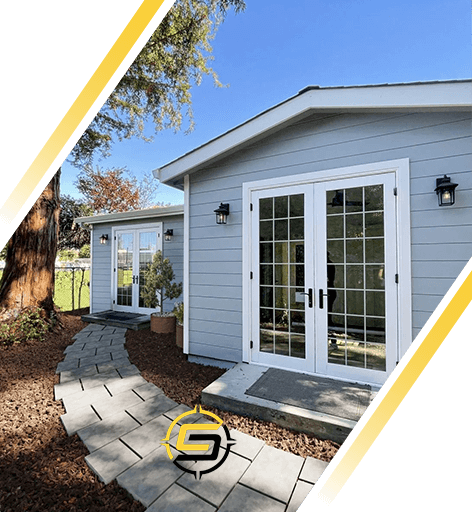Every year brings some exciting new legislation in California to make it easier for homeowners to build these on their property. 2023 is no exception. In another move to further reduce control over these secondary dwellings, two new bills have been tabled in the state legislature.
AB 1033 (Ting) seeks the removal of the current ban on selling ADUs separately from the primary residence, while AB 976 (Ting) proposes to end of permanent prohibition of owner occupancy restrictions.
Though there is some time before we see any of these bills take effect, it would be great to explore them in deep to determine what is possible for your ADU in the future.
AB 1033 (Ting) --Affordable Homeownership Units
AB 1033 proposes the prohibition against selling ADUs separately from the principal home. Instead, it suggests individual cities and counties be the ultimate decision maker.
Existing law prohibits the accessory dwelling unit from being sold or otherwise conveyed separately from the primary residence. In most cases, families build a unit for an adult child and sell it to him/her. In other cases, seniors build the ADU and see it off to create a retirement nest egg.
The proposed amendment will provide lower-income households in California to have a shot at homeownership, where the cost of an average house is between $700k – $1M.
ADU, with its own address, can become a property by itself. Till now, the ADU and the main house are considered as one property in California.
The ADUs in the form of condominiums in both new and existing buildings, which would offer affordably priced starter homes.
Selling ADUs separately from the primary residence is not a new idea in the United States. Several cities across the country, including Seattle, WA, Austin, TX, Portland, OR, and Princeton, NJ, have already been doing this for years to create affordable housing crises.

1. AB 976 (Ting)--Permanently Prohibit Owner Occupancy Restrictions
Though the cities and counties are already prohibited from requiring occupancy of the owner in either the ADU or the principal home, it will expire soon. The new law permanently removes the restriction.
It has been shown that in the places where owner occupancy restrictions are in force, the pace of ADU construction is slow.
Previously, the ADU occupancy requirement was set at five years. This meant that the property had to occupy either the principal home or the ADU for a minimum of five years following the completion of the ADU.
The owner occupancy requirement also applies to situations where the property is sold. If the property is sold within the five-year period, the new owner must continue to occupy either the primary residence or the ADU for the remaining time period.
Owner occupancy requirement was a major hindrance in the financing of an ADU as it reduces the rental income that could be leveraged otherwise. Because of so, lenders perceive that homeowners will be at greater risk of defaulting on their loans and disincentivize them to lend money for the construction of ADUs and purchase or refinance on properties with additional units that carry these restrictions.
Besides lenders, owner occupancy requirements also homeowners from creating ADUs. The high offset costs of building a dwelling unit and less potential passive income, many homeowners consider secondary units financially inviable.
Moreover, owner occupancy restriction also prevents real estate investors from creating an ADU on an investment property or purchasing a property with a dwelling unit to maximize their rental income.
Final Words
If approved, the bills will be greatly beneficial for the existing homeowners the middle-income working families looking for homeownership opportunities. The new legislation will pave the way for the construction of more and more ADUs and play a critical role in addressing the housing crisis across the state.

Plan and Build Your ADU with CCS Inc
While these bills are in review, there has never been a better time to set your ADU in motion.
For years, we at CCS Inc have been helping homeowners in Los Angeles navigate housing regulations to create ADUs on their property.
Reach out to us today to discuss your project with one of our experts.



